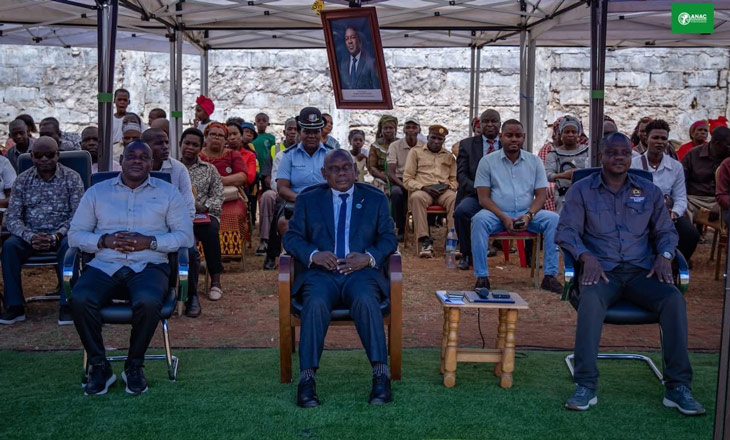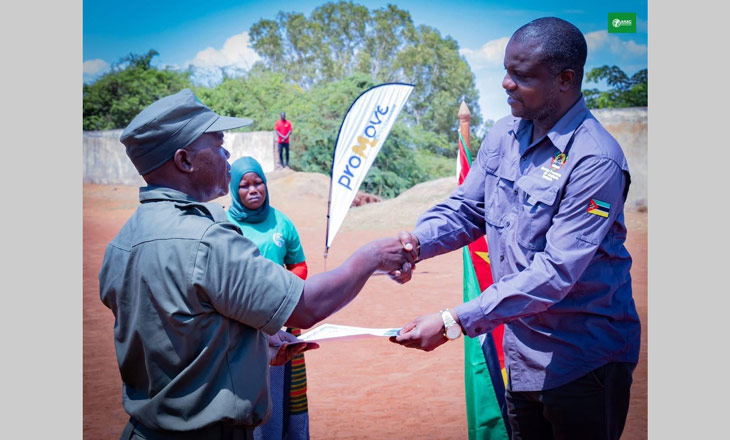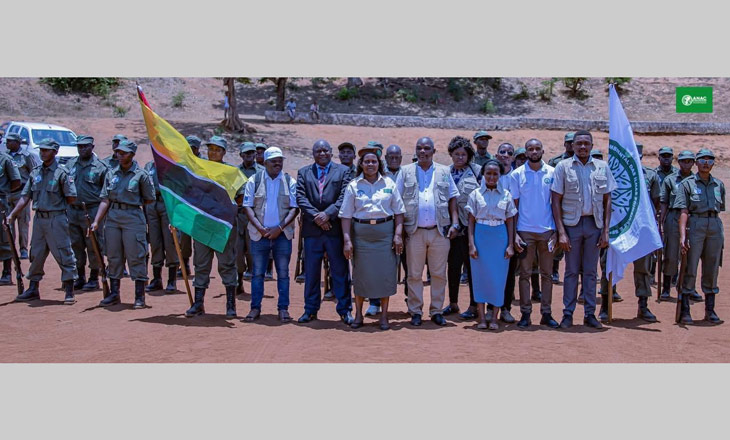With the support of the PROMOVE Biodiversidade Program, funded by the European Union and managed by the Foundation for the Conservation of Biodiversity (BIOFUND) and the National Administration of Conservation Areas (ANAC), the Environmental Protection Area of the Primeiras and Segundas Archipelago (APAIPS) celebrated the graduation of its first ranger team.
Published at 13/12/2024
First Ranger Team Trained at APAIPS: A Milestone in Biodiversity Conservation in Mozambique
Nearly 50 Rangers to Protect One of Largest Africa’s Natural Assets
A total of 47 forest and wildlife rangers received specialized training from the Police of the Republic of Mozambique. Among them, 13 are former community scouts who are now integrated into APAIPS’s ranger team. Their mission covers the districts of Angoche, Moma, and Larde in Nampula Province, and Pebane in Zambézia, representing just over 40% of a protected area spanning more than one million hectares.
During the graduation ceremony held on November 24, José Luís, Provincial Director of Environmental Services of Nampula, highlighted: “Beyond its ecological importance, APAIPS offers essential opportunities for sustainable fishing, ecotourism, and other livelihoods that directly benefiting our local communities.”
Partnerships and Commitments Reinforce the Success of the Initiative
ANAC’s Deputy General Director, Severiano Khoy, expressed gratitude to the partners: “The European Union, BIOFUND, and WWF have been tireless in ensuring the preservation of this beautiful natural heritage.” APAIPS Administrator, Ricardina Matusse, emphasized the significance of this milestone, pointing out that the efforts strengthen the conservation of one of Africa’s largest marine areas.
Sustainability as the Ultimate Goal
The PROMOVE Biodiversidade Programme, through its continued commitment and collaboration with ANAC, goes beyond enforcement, investing in sustainable management strategies, livelihood practices for local communities, and studies that inform environmental policies. This integrated approach aims to ensure not only the protection of biodiversity but also the improvement of living conditions for local populations.
This achievement reaffirms Mozambique’s commitment to sustainable development, promoting a harmonious coexistence between environmental preservation and community well-being.





